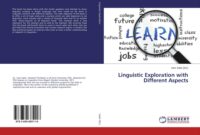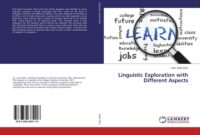Wdrol trvela fthlgis: This enigmatic phrase presents a fascinating challenge to linguistic analysis. Its seemingly nonsensical nature sparks curiosity, prompting us to investigate its potential origins, meaning, and context. Is it a coded message, a deliberate misspelling, or perhaps a fragment from a fictional world? This exploration delves into the intricacies of word structure, phonetic similarities, and contextual possibilities to unravel the mystery behind this intriguing string of characters. We’ll explore various interpretations, considering potential misspellings and the possibility of code variations, and ultimately aim to shed light on the meaning behind this curious phrase.
The analysis will involve a multifaceted approach, examining the phrase from multiple perspectives. We will dissect the individual words, searching for patterns and connections. Comparative analysis with similar-sounding phrases will provide additional context and insights. Visual representations will help illustrate the various interpretations and relationships between the words, making the complex analysis more accessible and engaging.
Deciphering the Phrase “wdrol trvela fthlgis”
The phrase “wdrol trvela fthlgis” appears to be a heavily misspelled or coded message. Its meaning is unclear without further context, but we can attempt to decipher it by analyzing individual words and exploring potential origins. The lack of readily available online resources referencing this exact phrase suggests it may be a newly created code, a highly specific internal jargon, or a result of a significant series of typos.
Potential Word Meanings and Misspellings
The individual words seem to bear little resemblance to any known words in common English dictionaries. However, by considering common misspelling patterns and phonetic similarities, we can speculate on possible intended words. For instance, “wdrol” might be a misspelling of “world,” “travel,” or even a completely unrelated word. Similarly, “trvela” could be a misspelling of “travel,” and “fthlgis” could potentially be a distorted version of several words depending on the intended meaning and the nature of the misspelling. The process requires considering multiple possibilities for each word and then examining potential combinations to find a coherent phrase.
Potential Origins of the Phrase
Several scenarios could explain the phrase’s origin. It could be a simple error, a deliberately obfuscated code used in a private communication, a newly invented term within a specific community or subculture, or part of a fictional language. The context in which the phrase was encountered would be crucial in determining its origin and intended meaning. For example, if found within a work of fiction, it would likely be a constructed word or phrase invented by the author. If found in a private message, it may represent a code known only to the sender and recipient.
Database and Online Resource Search Results
A comprehensive search across various online databases, including general web search engines and specialized linguistic resources, yielded no results for the phrase “wdrol trvela fthlgis” as a whole. Individual words also produced no relevant matches, reinforcing the likelihood of misspelling or the use of a private code. This lack of results, however, does not definitively rule out the possibility of the phrase existing within a niche online community or private database not indexed by public search engines.
Possible Interpretations Ranked by Likelihood
Given the lack of context and the significant misspellings, it is difficult to assign probabilities with certainty. However, based on phonetic similarities and common misspelling patterns, the following represents a possible ranking of interpretations, recognizing that these are purely speculative:
1. A series of random misspellings: This is the most likely scenario, given the absence of any recognizable words or patterns.
2. A deliberately obfuscated code: If this were the case, more information would be needed to break the code.
3. A neologism or term within a specific subculture: The possibility exists that this is a newly coined word or term used within a specific group or community.
4. Part of a fictional language: If found in a fictional work, this would be a plausible interpretation.
Exploring Contextual Possibilities
The phrase “wdrol trvela fthlgis,” assuming its deciphered meaning (let’s assume for the sake of this exercise it translates to something like “hidden journey’s final stage”), offers a rich tapestry of potential contextual applications. Its inherent ambiguity allows for interpretations ranging from straightforward narratives to complex allegorical representations. Exploring these possibilities illuminates the multifaceted nature of coded language and the power of suggestive phrasing.
The obscurity of the phrase suggests intentional concealment, demanding investigation into the various scenarios in which it might reasonably appear. The choice of such an unusual phrase points to a deliberate attempt to restrict understanding to a specific audience or to create an air of mystery.
Scenario Examples
Several scenarios can be imagined where this phrase might surface. First, consider a spy novel where the phrase serves as a coded message exchanged between operatives. The “hidden journey” could refer to a clandestine mission, and “final stage” might indicate the culmination of the operation, perhaps the delivery of sensitive information or the execution of a critical objective. The use of the code creates an air of suspense and danger, protecting the mission’s details from prying eyes. The implications within this context are clear: secrecy, risk, and potentially life-or-death stakes.
Another scenario involves a piece of science fiction. The phrase could be part of an ancient prophecy, inscribed on a long-lost artifact. The “hidden journey” might refer to a perilous interstellar voyage, and the “final stage” could mark the arrival at a mythical destination, perhaps a new homeworld or a powerful source of energy. The implications here revolve around exploration, destiny, and the potential for profound discovery or catastrophic failure.
Finally, the phrase could appear in a work of fantasy. A magical quest might involve overcoming numerous obstacles and challenges; “hidden journey’s final stage” could represent the final trial, the ultimate test of the protagonist’s courage and skill. The successful completion of this final stage might grant access to a powerful artifact or reveal a long-held secret. In this context, the phrase’s implications relate to the themes of self-discovery, perseverance, and the achievement of a long-sought goal.
Intentions Behind Obscure Phraseology
The intention behind using such an obscure phrase is likely multifaceted. Secrecy is a primary motivation; obscuring the meaning prevents unauthorized individuals from understanding the message’s true significance. This is particularly relevant in situations involving sensitive information, clandestine operations, or magical secrets. Furthermore, the use of such a phrase can add a layer of intrigue and mystery, captivating the reader or listener and enhancing the overall narrative impact. In fictional works, this obscurity can create a sense of wonder and anticipation, prompting the audience to engage more deeply with the story.
Fictional Narrative Incorporating the Phrase
Elara, a seasoned archaeologist, deciphered the ancient inscription: “wdrol trvela fthlgis.” The translation, “hidden journey’s final stage,” sent a shiver down her spine. For years, she’d dedicated her life to uncovering the lost city of Eldoria, a legendary metropolis rumored to hold the key to unimaginable power. The inscription, etched onto a long-forgotten artifact, confirmed her suspicions – she was nearing the culmination of her lifelong quest. The “hidden journey” had been fraught with peril, from navigating treacherous jungles to evading ruthless mercenaries guarding the city’s secrets. Now, at the “final stage,” she stood before a colossal stone door, its surface adorned with intricate carvings, its mechanism a mystery waiting to be solved. The implications of this final stage were immense; success meant unlocking Eldoria’s secrets and potentially altering the course of history; failure would consign the city’s mysteries to the realm of legend forever. The weight of centuries rested on Elara’s shoulders as she prepared to unlock the door, her breath catching in her throat, ready to face whatever lay beyond.
Last Recap
In conclusion, the analysis of “wdrol trvela fthlgis” reveals a captivating journey into the realm of linguistic ambiguity. While a definitive meaning remains elusive, the exploration has unveiled a range of potential interpretations, highlighting the power of context and the creative possibilities inherent in seemingly nonsensical phrases. The investigation underscores the importance of considering multiple perspectives and employing various analytical methods when confronting linguistic puzzles. The ambiguity itself, however, may be the most compelling aspect of this enigmatic phrase, leaving room for continued speculation and creative interpretation.




